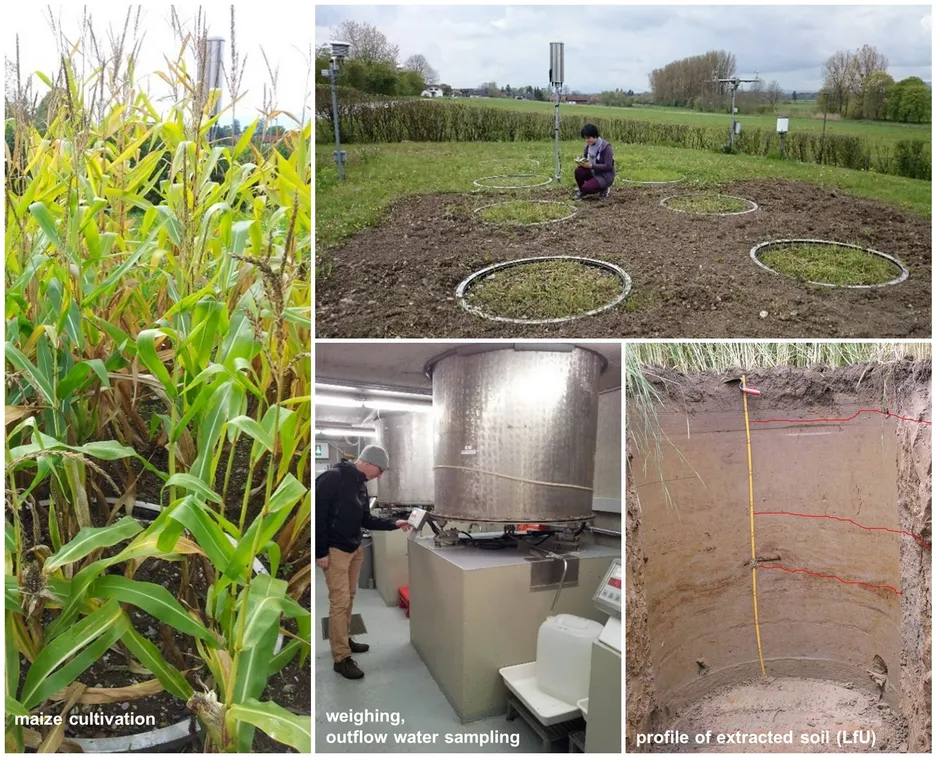Water movement and fate of pesticides in the unsaturated zone linked to biodegradation processes
Groundwater concentrations of compounds originating from agriculture, such as pesticides and nitrate, have increased in many aquifers over the past decades, posing a serious threat to drinking water quality. This can be seen worldwide, in particular in Europe and North America, but also in Brazil and in other countries (*). Such problems related to diffuse sources of soil and groundwater pollution are intensifying due to an increase of agricultural activity for food production.
Within this project, we analyze water flow, chemical transport and fate processes in the unsaturated zone by using stable isotope technique linked with modeling applications. Among others this will include the calculation of mean transit times of water and the analysis of process-related isotope fractionation by compound-specific isotope analysis (in cooperation with the Helmholtz Zentrum München, Institute of Groundwater Ecology). Furthermore, our studies will involve the determination of process kinetics, as well as analytical and numerical modeling and model development. Investigations will in particular address the significance of interfaces in the subsurface which may demonstrate hot-spots for microbial degradation.
This project is done in collaboration with the Bavarian Environment Agency (Bayerisches Landesamt für Umwelt LfU). In Wielenbach, LfU carries out experiments using four lysimeters filled with different soils and planted with maize, where pesticides are applied. Aims of our project are to improve the understanding of processes related to pesticide leaching and fate, which could also support decision making towards an improved (lower-impact) agricultural practice and a sustainable protection of groundwater for drinking water safety.
(*) E.g., in Germany, the sale of pesticides has increased considerably from about 28900 tons in 1993 to about 43760 tons in 2013 (according to the German Federal Office of Consumer Protection and Food Safety).

Contributions to SDG
Responsible:
Dr. Arno Rein; M. Sc. Fatemeh Shajari; Prof. Dr. Florian Einsiedl


